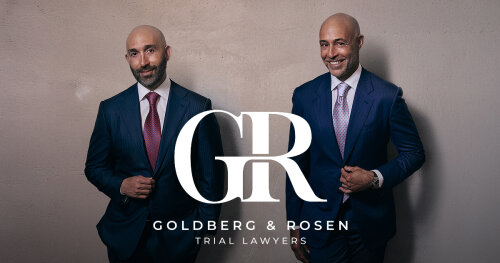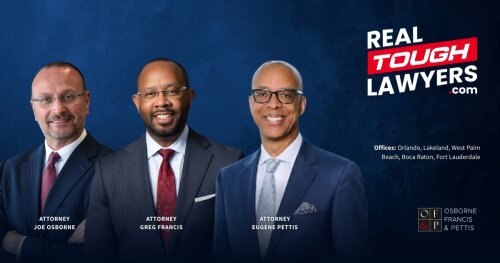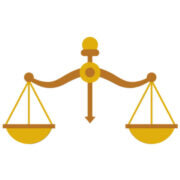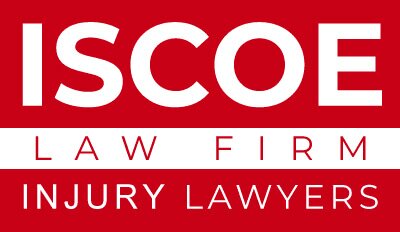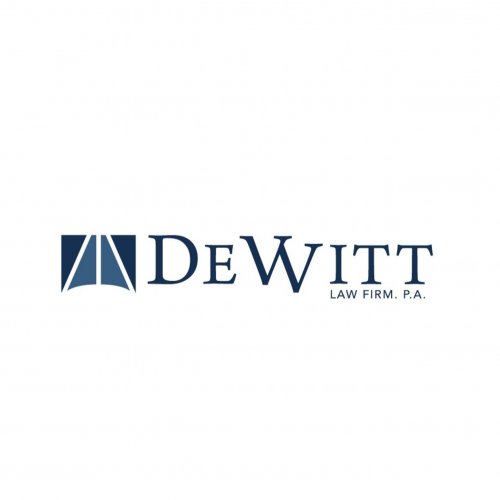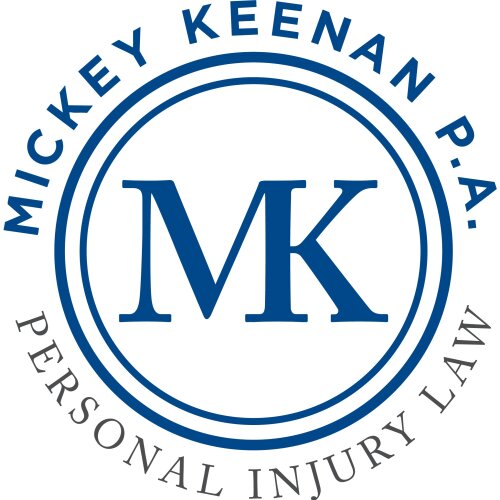Best Accidents & Injuries Lawyers in Florida
Share your needs with us, get contacted by law firms.
Free. Takes 2 min.
Or refine your search by selecting a city:
List of the best lawyers in Florida, United States
United States Accidents & Injuries Legal Articles
Browse our 1 legal article about Accidents & Injuries in United States written by expert lawyers.
- What to Do After a Serious Car Accident in the US: A Legal Step-by-Step Guide
- Call 911, get medical help, and do not admit fault. Photograph the scene, vehicles, and your injuries, and get witness names and the officer's report number. Report the crash to your insurer quickly. In no-fault states, PIP deadlines are short (e.g., Florida requires initial treatment within 14 days; New York... Read more →
About Accidents & Injuries Law in Florida, United States
Accidents and injuries law in Florida, also known as personal injury law, is designed to help people who have been physically or emotionally harmed due to someone else’s negligence, recklessness, or intentional actions. This area of law covers a wide range of incidents, including auto accidents, slip and fall injuries, workplace accidents, medical malpractice, and more. Victims may be entitled to compensation for medical expenses, lost wages, pain and suffering, and other damages. Florida has specific laws and procedures in place to protect victims and ensure they have an avenue to seek justice and recover their losses.
Why You May Need a Lawyer
There are many situations where legal assistance can make a significant difference after an accident or injury in Florida. Common scenarios include:
- You have been seriously injured in a car, motorcycle, or truck accident and face mounting medical bills.
- You are dealing with an insurance company that is denying or undervaluing your claim.
- You suffered an injury at someone else's property due to unsafe conditions or inadequate warning signs.
- You were hurt at work and face challenges with workers’ compensation or a third-party claim.
- A loved one died due to someone else's negligence, and you want to explore a wrongful death claim.
- You experienced medical malpractice and need help proving negligence.
Lawyers specializing in accidents and injuries can help by collecting evidence, negotiating with insurance companies, representing you in court, and ensuring your rights are protected throughout the process.
Local Laws Overview
Florida has unique aspects to its accidents and injuries law that you should be aware of:
- Comparative Negligence: Florida follows a modified comparative negligence rule. This means that if you are found partially at fault for your own injury, your compensation may be reduced by the percentage of your fault. As of March 2023, plaintiffs who are more than 50 percent at fault cannot recover damages in most negligence cases.
- No-Fault Auto Insurance: Florida is a no-fault state for car accidents. Drivers must carry Personal Injury Protection (PIP) insurance, and in most cases, your own insurance will cover your medical expenses, regardless of who was at fault, up to policy limits. Serious injuries may allow you to step outside the no-fault system and file a lawsuit against the at-fault driver.
- Statute of Limitations: Florida generally gives you two years from the date of the accident to file a personal injury lawsuit, though certain circumstances may extend or shorten this deadline. Wrongful death claims also have a two-year time period.
- Premises Liability: Property owners must keep their premises reasonably safe. If you are injured due to hazardous conditions, you may have a claim against the owner.
- Workers’ Compensation: Most employers in Florida must have workers’ compensation insurance to cover injuries that occur on the job. There are strict timelines and procedures for reporting and making claims.
Frequently Asked Questions
What should I do immediately after an accident in Florida?
First, seek medical attention for any injuries. Report the accident to the relevant authorities, gather evidence and witness information, and document everything. Notify your insurance company and consider consulting a qualified attorney before discussing fault or accepting settlements.
How long do I have to file a lawsuit after an accident?
Most personal injury and wrongful death claims in Florida must be filed within two years from the date of the accident or death. Some exceptions may apply, so it’s important to act quickly.
What if I was partially at fault for the accident?
Under Florida’s modified comparative negligence rule, you may still recover damages if you are less than 51 percent at fault, but your award will be reduced by your percentage of fault. If you are found more than 50 percent at fault, you cannot recover damages.
What types of compensation can I receive in a personal injury case?
You may be eligible for compensation covering medical expenses, lost wages, pain and suffering, property damage, and, in some cases, punitive damages if the responsible party acted with gross negligence.
Do I need a lawyer for my injury claim?
While you can file a claim on your own, an experienced injury attorney can help maximize your compensation, handle complex legal issues, and deal with insurance adjusters and opposing parties.
How are attorney fees handled in accident and injury cases?
Most personal injury lawyers in Florida work on a contingency fee basis. This means that you do not pay upfront legal fees, and the lawyer only gets paid if you receive compensation.
What if the at-fault party has no insurance?
You may still pursue compensation through your own uninsured or underinsured motorist coverage, or by filing a lawsuit against the at-fault party. Recovery can depend on their assets and other sources of funds.
What is Personal Injury Protection (PIP) insurance?
PIP insurance is mandatory for drivers in Florida. It covers your own medical expenses and certain lost wages after a car accident, regardless of who was at fault, up to the policy limit, typically $10,000.
Can I sue for pain and suffering after a car accident?
You can pursue non-economic damages like pain and suffering only if you meet certain criteria, such as suffering a significant or permanent injury that allows you to step outside the no-fault system.
What if my accident happened at work?
You should report the incident to your employer promptly and seek medical care. Most work-related injuries are covered by workers' compensation, but in some instances, you may also have a personal injury claim against a third party.
Additional Resources
If you need more information or assistance, consider reaching out to these helpful organizations and resources:
- Florida Bar Lawyer Referral Service
- Florida Department of Highway Safety and Motor Vehicles (DHSMV) for accident reports and driver resources
- Florida Department of Financial Services - Division of Consumer Services for insurance concerns
- Florida Department of Health for injury statistics and hospital information
- Local county clerk of court for filing injury lawsuits
- Local legal aid societies for low-cost or free legal assistance
Next Steps
If you or a loved one has been injured in Florida and need legal help, it is important to act promptly:
- Seek medical care and preserve all documents related to your injuries and expenses.
- Consult with a qualified personal injury attorney who can evaluate your case and advise you on the best course of action.
- Gather evidence, take photos, and document the accident scene as soon as possible.
- Report the incident to relevant parties, including employers, property owners, or insurance providers.
- Stay within the statute of limitations to preserve your right to make a claim.
A knowledgeable attorney can help guide you through the legal process, handle negotiations with insurers, and, if necessary, represent you in court to secure the compensation you deserve.
Lawzana helps you find the best lawyers and law firms in Florida through a curated and pre-screened list of qualified legal professionals. Our platform offers rankings and detailed profiles of attorneys and law firms, allowing you to compare based on practice areas, including Accidents & Injuries, experience, and client feedback.
Each profile includes a description of the firm's areas of practice, client reviews, team members and partners, year of establishment, spoken languages, office locations, contact information, social media presence, and any published articles or resources. Most firms on our platform speak English and are experienced in both local and international legal matters.
Get a quote from top-rated law firms in Florida, United States — quickly, securely, and without unnecessary hassle.
Disclaimer:
The information provided on this page is for general informational purposes only and does not constitute legal advice. While we strive to ensure the accuracy and relevance of the content, legal information may change over time, and interpretations of the law can vary. You should always consult with a qualified legal professional for advice specific to your situation.
We disclaim all liability for actions taken or not taken based on the content of this page. If you believe any information is incorrect or outdated, please contact us, and we will review and update it where appropriate.
Browse accidents & injuries law firms by service in Florida, United States
Florida, United States Attorneys in related practice areas.
Browse accidents & injuries law firms by city in Florida
Refine your search by selecting a city.



